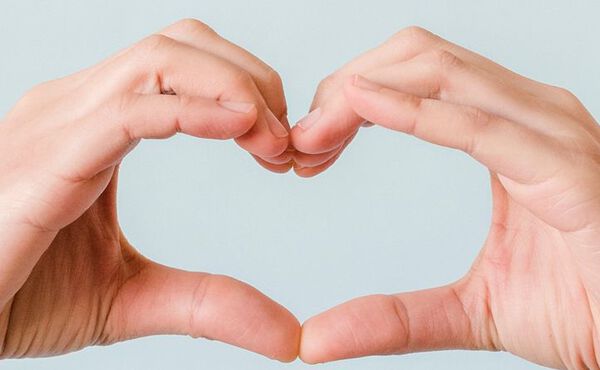At some point in our lives, we all get hurt by the actions or words of another. Perhaps a friend who shared something that you’ve told them in confidence, a mother-in-law who criticises how you raise your little one, a partner who cheated on you, or a boss who took the credit for your hard work. These emotional wounds can leave you with lasting feelings of anger, bitterness, resentment and even vengeance. Anger can be satisfying for a time but, if you don't practice forgiveness, you might be the one who pays most dearly. By embracing forgiveness, you can also embrace peace, hope, gratitude and joy. But forgiving someone or yourself, like so many things in life, is easier said than done. Take a deep dive into the health benefits of forgiveness and discover how it can lead you down a path of physical, emotional, and spiritual well-being.
What is forgiveness?
Before we go deeper into the how to forgive part, let’s take a step back and plunge into the actual meaning of forgiveness. Honestly, it was a tough job to define it since forgiveness means different things to different people. Generally speaking, however, forgiveness involves the decision to let go of resentment and thoughts of revenge. Forgiveness is often defined as an individual, voluntary internal process of letting go of feelings and thoughts of resentment, bitterness, anger, and the need for vengeance and retribution towards someone who we believe has wronged us, including ourselves. According to Margit Nooteboom, psychologist at Open Up, the process of forgiveness can take considerable time and effort. Despite the possible internal struggle it may cause, forgiveness can be positively transformative for yourself, for the hurtful person and for those around you. It can help restore self-esteem, and once offering kindness to the person who hurt you, you change the way you look at yourself.
The words or acts that hurt or offended you might be with you for as long as you live, but forgiveness can lessen its grip on you and help to free you from the control of the person who harmed you. The magical outcome when you genuinely forgive someone? Expriencing the feeling of understanding, empathy and even compassion for the one who hurt you. Keeping this in the back of your mind, you maybe can’t wait to start the process. That said, please take the following sidenote into account: forgiveness doesn't mean forgetting or excusing the harm done to you or making up with the person who caused the harm. Forgiveness brings a kind of peace that helps you move on with your life.
Michael McCullough, Psychologist and writer of the book ‘Beyond Revenge: The Evolution of the Forgiveness Instinct’, argues that the key to a more forgiving, less vengeful world is to understand the evolutionary forces that gave rise to these intimately human instincts and the social forces that activate them in human minds today. According to him, our capacity for forgiveness is a part of human nature that has evolved throughout the process of natural selection, and according to evolutionary science, it developed in the same way as our tendency toward revenge. Both forgiveness and revenge are social instincts that solved problems for ancestral humans. For example, sharing fruits or fetching an extra dear as a token of forgiveness. Or, and let’s be thankful we have more polite ways nowadays, setting a village on fire as an expression of revenge.
Although both are fixed aspects of human nature, these capacities can be altered, which gives us hope that we can make the world a more forgiving and less vengeful place. So now that we have shone a light upon the essence of forgiveness, let’s explore what the benefits are.
.jpg?sw=600&sh=370&sm=fit&cx=0&cy=0&cw=722&ch=445&sfrm=jpg)
The benefits
The main question remains: why bother? Well, letting go of grudges and bitterness can make way for improved health and a peaceful state of mind. When you’re let down or disappointed, it may feel that your heart literally hurts. This isn’t a case of phantom pain; these powerful negative emotions truly influence your health. Forgiveness, on the other hand is literally good for your heart.
One 2017 study from the Annals of Behavioral Medicine was the first to associate greater forgiveness with less stress and ultimately better mental health. For this research, two test groups were assembled: group A was not allowed to forgive, in contrast to the people in group B who were encouraged to forgive themselves and others. The group that didn’t practice forgiveness experienced higher blood pressure, feelings of depression, higher levels of eye muscle tension and a higher heart rate.
In addition to that, another study published on Positive Psychology showed that forgiveness has an even bigger impact on overall well-being. Psychologists found out that it restores positive thinking and relationships, reduces anxiety, strengthens spirituality, raises self-esteem and – last but certainly not least – creates greater capacity for conflict management and the ability to cope with stress.
In a nutshell, forgiveness is good for your body, your relationships, your mind, and your place in the world as a human being. We believe that’s reason enough to convince virtually anyone to do the work of letting go of anger and working on forgiveness. Did we grasp your attention? Great. Now take a closer look at how to forgive.
REACH-method
After extensive research we ran into the REACH-method, a 5-step model to facilitate the process of forgiveness. The mastermind behind this helpful tool is psychologist Everett Worthington Jr. a licensed clinical psychologist and Professor of Psychology at Virginia Commonwealth University. A pioneer researcher in the field of forgiveness, he has written over 30 books on topics including forgiveness of others, self-forgiveness, character strength and psychology.
Worthington's 5-step technique of forgiveness is called REACH. An acronym that stands for:
Recall the hurt
Empathise with the one who hurt you
Altruistic gift of forgiveness
Commitment to forgive
Hold on to the forgiveness
Let’s zoom in on each step, so you can actively start practicing the method yourself and enjoy all the amazing health benefits listed above. Here is Everett Worthington Jr.’s guide to forgiveness...
Step 1: Recall the Hurt. When we are hurt, it is natural to experience fear or anger. So, when you encounter the wrongdoer in person or in your thoughts, you might tense up, withdraw into your shell or lash out at him or her in your mind. To heal, you have to face the fact that you’ve been hurt. Consciously choose not to be snarky (nasty and hurtful), not to treat yourself like a victim, and not to treat the other person as a jerk. Instead, decide to forgive and that you are not going to pursue payback but you will treat the person concerned with grace.
Step 2: Empathize with the person who hurt you. Explain the hurtful act, not from your perspective, but from that of the other. In fact, empathy is putting yourself in the other person’s chair. Ask yourself the question: why did he or she cross my boundaries? Pretend that the other person is in an empty chair across from you. Talk to him or her and lay your heart on the table. Then, when you’ve had your say, sit in the wrongdoers’ chair. Talk back to the imaginary you in a way that helps you see why the other person might have wronged you. This builds empathy, and even if you can’t empathize, you might feel more sympathy, compassion, or love, which helps you heal from hurt.
Step 3: Altruistic gift of forgiveness. Recall a moment when you wronged someone - maybe a parent, teacher, or friend - and the person forgave you. Chances are high that you felt light and free afterwards. How that works? When you think of forgiveness as an unselfish, altruistic gift, you will feel grateful receiving and giving it away. Giving the gift makes us feel better. As the saying goes, "If you want to be happy for a lifetime, help someone”, a gift is given to help the other person. Offer the gift of forgiveness for the wrongdoer's own good. You might get a gift in exchange: your own peace of mind.
Step 4: Commit. Once you’ve forgiven, write a note to yourself. This can be as simple as, “Today, I forgave [person’s name] for hurting me.” This helps your forgiveness last.
Want to take it a step further? Make a commitment to yourself to forgive publicly so you don't have a chance to back out later. Such public commitment may include announcing your intention to a group you belong to, write a "certificate of forgiveness" with a specific date on the certificate; write a letter of forgiveness to the wrongdoer and reading it out loud, or tell a trusted friend about your act of forgiveness.
Step 5: Hold onto forgiveness. Memories of the hurtful event will surface even after you have forgiven the wrongdoer. Hopefully, the memories will not be as emotional and disturbing as they were before you exercised your prerogative of forgiveness. If necessary, reread the notes of commitment you’ve written, because we will almost surely be tempted to doubt that we really forgave. See it as a reminder that you did forgive.
The 4 R’s for self-forgiveness
Now that you have the tools in hands to practice forgiving someone else, Margit Nooteboom has great advice about how to forgive yourself. Margit says, “forgiving yourself means that you accept your behaviour, what happened and that you’re willing to put it behind you and move on with your life without worrying about past events that cannot be changed. When it comes to self-forgiveness, the 4 R's can help you in this process.”
Responsibility
In this step you accept your own responsibility for your actions. By doing this you can deal with negative emotions, such as excessive regret and guilt.
Remorse
Allow yourself to regret your actions or behaviour. As long as they are not unhealthy feelings of guilt or regret, these feelings can allow you to reflect on the consequences of your behaviour.
Restoration
Find appropriate ways to make it up to another. This could be by apologising in a letter, bringing a bouquet of flowers or by calling the person.
Renewal
Think about the lessons you can learn from this experience and how you can grow as a person.
.jpg?sw=1440&sh=445&sm=fit&cx=0&cy=0&cw=1440&ch=445&sfrm=jpg)


%20(1).jpg?sw=600&sh=370&sm=fit&cx=0&cy=0&cw=600&ch=370&sfrm=jpg)



